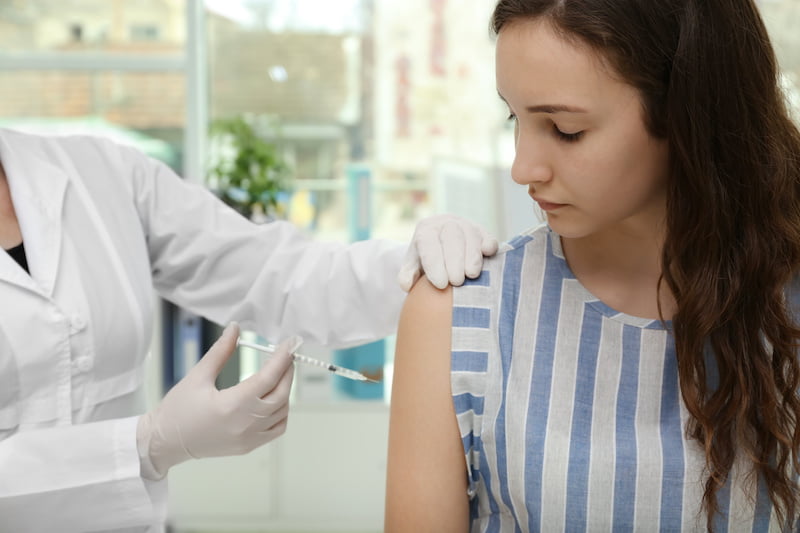The most frequent sexually transmitted infection is the human papillomavirus or HPV. Most of the time, the body is able to remove it without difficulty. When it doesn’t, unfortunately, it can result in cancer. HPV is the most common cause of cervical cancer, as well as cancer of the vaginal, vulvar, penis, anus, and mouth. HPV is responsible for more than 40,000 cancer cases per year.
Most of them can be prevented with the HPV vaccine.
The vaccine’s effectiveness was addressed in a study published in the journal Pediatrics. Between 2006 and 2017, researchers examined+ the protection of women aged 13 to 26 against various HPV strains. They focused on women because the vaccine was first only given to women, thus we have more data on its effects on women. What they discovered was really reassuring. Not only did the vaccine appear to protect against the strains covered by the vaccine, but women who received it were also less likely to be infected by other strains of HPV, indicating that the vaccine exhibits cross-reactivity.
Even women who did not receive the vaccine became less likely to be infected with HPV over the 10-year period, which was even more reassuring. This is referred to as herd immunity. Those who get vaccinated help to safeguard others by making the infection less common.
There aren’t many negative effects of the HPV vaccine. Warmth, swelling, and mild discomfort at the injection site are the most typical side effects. However, this can happen with any vaccine shot. Similarly, children may faint after receiving shots, and if they fall while fainting, they may get hurt. Your youngster will be required to remain sitting until your clinic determines that he or she is in good health. We constantly advise parents to keep a close eye on their children and to contact us if something looks off.
According to a 2017 CDC report, HPV is considerably more common in men than in women. The HPV vaccine protects males from future infections that can lead to certain types of cancer.
The vaccine is most effective when administered to younger children when only two doses are required. Plus, you can get it done at the same time as the other adolescent vaccines that are advised. It is still effective after the age of 12 — individuals as old as 26 can receive the vaccine – but it requires three doses for those aged 15 and older, and it may be less effective.
It’s also better if the HPV vaccine is given before the child starts sexual engagement.
Book an appointment at Toronto SanoMed Medical Clinic for an HPV Vaccine dose.

